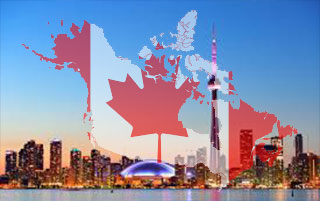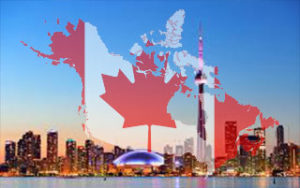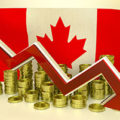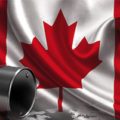It is not a secret to anyone that there is a housing bubble in Canada, more specifically in Toronto and Vancouver. Many say the housing bubble is driven by wealthy Asian – mainly Chinese – investors looking for a place to park their capital. As a result, both cities have experienced quickly accelerating housing prices that are increasingly keeping locals out of the market. As a result, the government of British Columbia – the province where Vancouver is located – has imposed a foreign buyer tax of 15%. This tax is credited with cooling the market down over the last few months, but it seems its effect is now eroding.
At a glance, such a tax would drive the investors out of Vancouver and British Columbia, but many will just switch their investments over to Toronto. This makes the policy ineffective at a national level, but that is the way that Canada is organized politically and there is nothing that can be done about it. Each province draws its own policies in terms of foreign ownership of real estate. Nevertheless, the currency that binds all the provinces together regardless of their real estate policies, is also taking the bite out of British Columbia’s new tax.
Provinces can’t do as much for the value of the Canadian Dollar as they do for their tax policies. As the provincial governments adjust their foreign asset buyer policies, the Canadian Dollar is being hit, eroding the efficiency of these new taxes. This means that as long as the Loonie stays around its current rate, British Columbia will be able to fend Asian investors off and will be able to cool Vancouver’s overheated housing market. But if the Loonie dips to a level similar to the one we saw at the beginning of the year – with a low of around $1.40 CAD per USD – then the effect of the foreign buyers tax will be null and void, insofar as the housing market is concerned.
In the meantime, it seems that the Canadian economy is so dependent on commodity prices that such a scenario is not farfetched. The Canadian Dollar has been trading at around $1.32 CAD per $1 USD for the last few days, and with oil and other commodity prices dipping further, the erosion of British Columbia’s tax is a clear and present danger. Low interest rates and the failure of the Canadian economy to shift its exports away from commodities will only compound the problem and will turn up the heat in the Vancouver housing markets once again.
It is not a secret to anyone that there is a housing bubble in Canada, more specifically in Toronto and Vancouver. Many say the housing bubble is driven by wealthy Asian – mainly Chinese – investors looking for a place to park their capital. As a result, both cities have experienced quickly accelerating housing prices that are increasingly keeping locals out of the market. As a result, the government of British Columbia – the province where Vancouver is located – has imposed a foreign buyer tax of 15%. This tax is credited with cooling the market down over the last few months, but it seems its effect is now eroding.
At a glance, such a tax would drive the investors out of Vancouver and British Columbia, but many will just switch their investments over to Toronto. This makes the policy ineffective at a national level, but that is the way that Canada is organized politically and there is nothing that can be done about it. Each province draws its own policies in terms of foreign ownership of real estate. Nevertheless, the currency that binds all the provinces together regardless of their real estate policies, is also taking the bite out of British Columbia’s new tax.
Provinces can’t do as much for the value of the Canadian Dollar as they do for their tax policies. As the provincial governments adjust their foreign asset buyer policies, the Canadian Dollar is being hit, eroding the efficiency of these new taxes. This means that as long as the Loonie stays around its current rate, British Columbia will be able to fend Asian investors off and will be able to cool Vancouver’s overheated housing market. But if the Loonie dips to a level similar to the one we saw at the beginning of the year – with a low of around $1.40 CAD per USD – then the effect of the foreign buyers tax will be null and void, insofar as the housing market is concerned.
In the meantime, it seems that the Canadian economy is so dependent on commodity prices that such a scenario is not farfetched. The Canadian Dollar has been trading at around $1.32 CAD per $1 USD for the last few days, and with oil and other commodity prices dipping further, the erosion of British Columbia’s tax is a clear and present danger. Low interest rates and the failure of the Canadian economy to shift its exports away from commodities will only compound the problem and will turn up the heat in the Vancouver housing markets once again.







